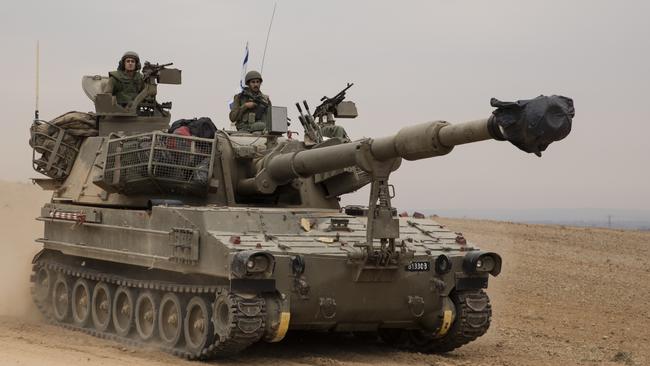Israel at war: How Hamas terrorist group caught nation on hop

Hamas was thought to have been contained and weakened by blockades, years of aerial assaults and sweeping Israeli surveillance. So how did the terrorist group do it?
The operation was in the planning for months, perhaps up to two years. According to one account, Hamas was able to build a mock Israeli target within Gaza to practise assaults, despite the omnipresence of Israeli monitoring technology.
Meanwhile, the Hamas leadership sought to convince Israel that it cared more about ensuring residents had access to work permits and jobs across the border than starting a new war.
It must have armed and drilled its fighters thoroughly but took care not to reveal the strategy behind their training.
Hamas’s timing was also precise. The army has been distracted by Israel’s political divisions, many of its reservists effectively on strike in opposition to constitutional reform plans by Prime Minister Benjamin Netanyahu, and some battalions diverted to protect the aggressive actions of West Bank settlers stirred up by his hard-right coalition partners.
On Saturday, the Sabbath and a public holiday, Hamas fighters first took over Israeli military posts in the Gaza Division, destroying weapons and setting fire to communications and observation posts to disrupt their enemy’s command and control capabilities. Invasions from the sea with windsurfers and vessels were mainly a diversionary operation for that central attack, whose main waves used bulldozers to carve a path through the border fence, through which motorcycles and jeeps could pass. An advance guard flew in by hang glider.
There were some similarities to a training exercise performed for journalists by Hezbollah in Lebanon earlier this year, when fighters showed off the way in which they would breach the border and kidnap an Israeli soldier. Hamas representatives were also in the audience.
The question of whether Iran – with Hamas a key part of its network of proxy militias surrounding Israel – planned and ordered the attack is now swirling through the halls of power and the fate of a wider swath of the Middle East than Gaza rests on the answer.
Israel’s more forceful supporters in Washington argue that Iran as well as Gaza must now be targeted militarily.
Mutual training systems are certainly part of the Iranian support. It is also almost certain that the Iranian regime would have signed off on the attack. However, Iran’s relationships with its allied militias are close but various, and the rules are never explicit.
With an ideology mixing religious fundamentalism and enmity to Israel, the “axis of resistance”, as they term it, opposes both Israel and the wider security order in the Middle East, to the extent it is backed by the US.
But the fact Hamas is Sunni rather than Shia, and an offshoot of a distinctly Sunni political tradition in the Muslim Brotherhood, means it has guarded its independence from Tehran more than, say, Lebanon’s Hezbollah, and they ended up on the opposite sides in the Syrian civil war.
Attacks such as Hamas’s serve a political purpose in showing that “resistance” is possible, that neither Israel nor America is all-powerful, and that there is no need, as pro-Western Arab states have done, to “normalise” relations with Israel.
In the past year, the regime leader with responsibility for relations with these groups, Esmail Ghaani, head of the Quds Force of Iran’s Revolutionary Guard, has been holding meetings with their leaderships in Beirut to try to get them to work more closely together.
Such is the startling success of the Hamas raid, it is natural to link it to these meetings. However, that link remains to be proven. Instead, the scale and brutality of the weekend’s attack is more likely to be homegrown.
Iran’s attitude to its recent rapprochement with Saudi Arabia is uncertain, and it would be delighted if Hamas’s attack put an end to talk of Riyadh normalising relations with Israel, something that would bring that rapprochement to an end. But there is also a risk that Hamas has gone further than Iran would expect of it.
The Times



The shock and awe of Hamas’s incursion into Israel was unprecedented and caught the world’s most sophisticated counter-terrorism regime completely off guard.